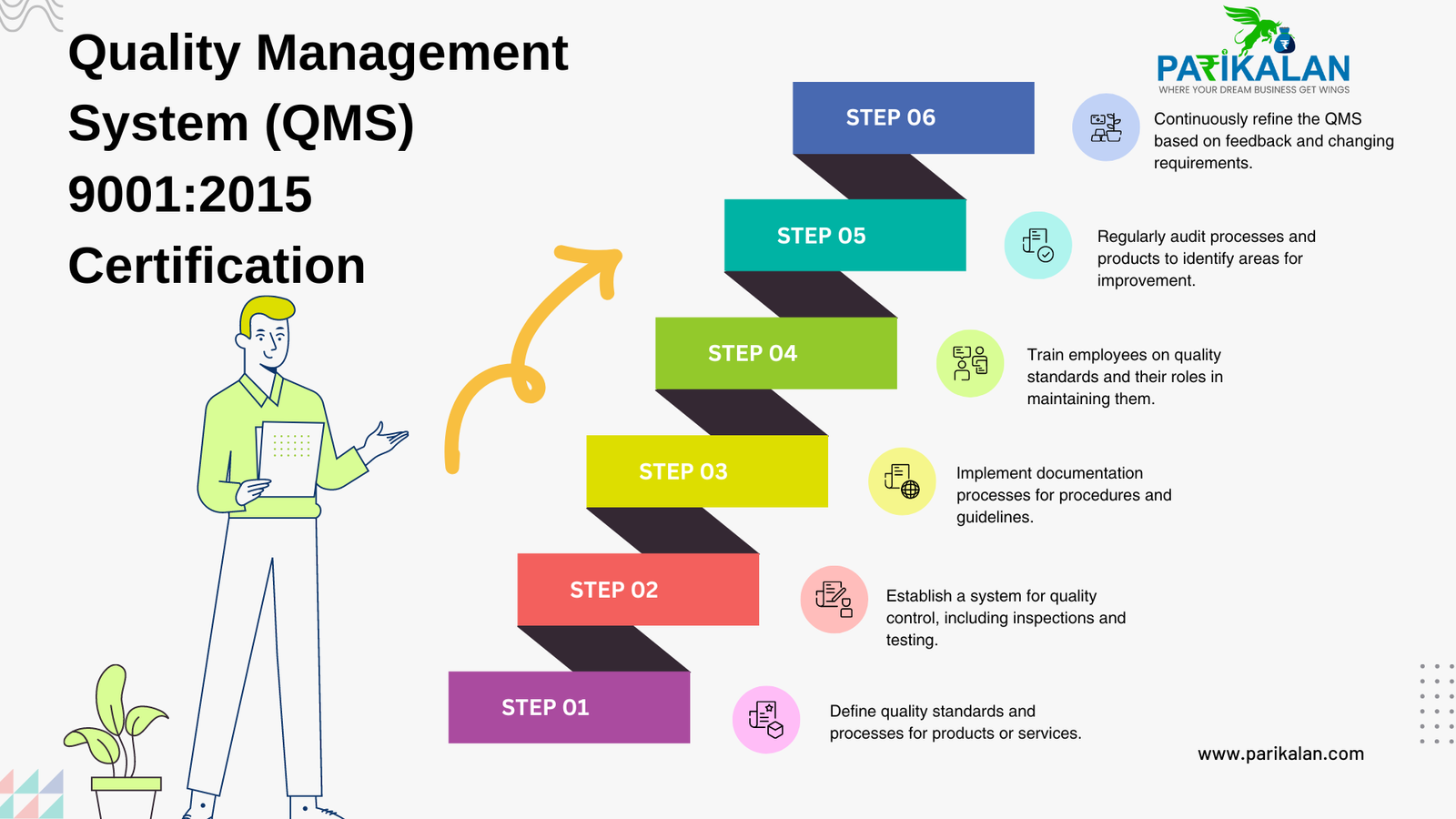ISO 9001 Certification in Education: Ensuring Quality in Educational Institutions
To ensure that their students receive the best education possible schools are given the responsibility of sustaining and increasing its quality instruction. In this sense, ISO 9001 certification serves as a quality indicator that offers a standardized system that can be utilized to create a quality management system. Although it is often associated with businesses that want to improve their operations, its use in education is a viable option for improving conformance to standards in an educational environment. This blog focuses on the symbiotic relationship between ISO 9001 principles and educational institutions. Integrating quality assurance into educational institutions allows them to meet and exceed the expectations of those involved by fostering a culture that encourages continuous improvement and ensures holistic improvement for all learners.
Get Business Development Kit
Application of ISO 9001 Certification in Education:
The ISO 9001 principles were initially developed for industry, although they can be adapted to meet the specific needs of schools. Institutions adopt these principles by implementing solid quality management systems that cover aspects such as the development of curriculum, teaching methods and assessment methods, as well as student support services and administrative processes. Through setting clear goals, conducting periodic assessments and involving stakeholders, educational institutions can ensure that their activities are easily aligned with ISO 9001 standards to enhance the efficiency and effectiveness of their operations. .
In the world, numerous colleges and universities around the world have been successful in implementing ISO 9001 principles to raise their standards of quality. For instance universities have embraced ISO 9001 certification to streamline admissions procedures, improve the quality of assessment of courses, and increase student feedback. Additionally, the schools have integrated ISO 9001 into their administrative processes, ensuring uniformity in grading systems, attendance tracking, and facility management.

Benefits of ISO 9001 Certification for Educational Institutions
Certainly the most important benefits that come with ISO 9001 certification for educational institutions are the following:
- Improved student satisfaction and results in learning: ISO 9001 principles are used to cater to the needs of students which results in greater satisfaction and better academic performance.
- Increased trust among all parties involved: ISO 9001 builds trust between educators, parents, students as well as regulators, that demonstrates the institution’s dedication and determination to provide education of the highest standard.
- Continuous Improvement: focus is put on continual advancement. ISO 9001 promotes a culture of innovation and high-quality within the company.
- Standardization of processes and procedures :– Certification provides consistency in operations by ensuring that practices are consistent throughout the institution.
- Better utilization of resources and cost control: Efficient processes identified through certification improve resource allocation and reduce operating expenses.
Steps to Achieve ISO 9001 Certification in Education
- Perform a gap assessment :The first step is reviewing the procedures and processes of your organization in respect to ISO 9001 standards to identify areas that need to be adjusted or alignment.
- Implementing a Quality Control System (QMS) Creating an entire QMS adapted to the needs of the institution that outlines the processes used to develop curriculum and student assessment administration as well as other important areas .
- Implementation of necessary changes and enhancements: Implement identified modifications and improvements to bring existing processes into conformance with ISO 9001 standards. This may include training employees or updating documentation. It may also mean improving processes.
- Training and documentation for staff: Document all processes, procedures and policies that are part of the QMS and provide training to staff to ensure their understanding of and compliance with ISO 9001 requirements.
- Be prepared to conduct certification audits and assessments. To evaluate whether the QMS is functioning and to identify any problems
Or conduct an internal audit to resolve the issue. Once you are confident that the system is ready, you can hire a certification organization to conduct an external audit to confirm that it conforms to ISO 9001 standards.
Documents Required for Applying ISO 9001 Certification

Company / Service Govt. Registration Proof

Valid Letter Head including Address

Quality Manual

Internal Audit/MRM
Conclusion:-
Finally, ISO 9001 certification presents an exciting prospect for schools to improve their standards and guarantee unmatched quality of learning. By following ISO 9001 principles, institutions can increase the efficiency and effectiveness of their operations, student satisfaction, and stakeholder confidence. In many cases around the world, the benefits of certification exceed compliance and encourage a culture of continuous improvement and excellence – institutions are seeking advice on their certification journey from Parikalan Consultancy OPC Pvt. Ltd., located in Bahadurgarh, Haryana, provides exceptional services. Through their knowledge and commitment to excellent educational institutions, they can complete the certification process quickly, facilitating the era of higher education and student achievement.

